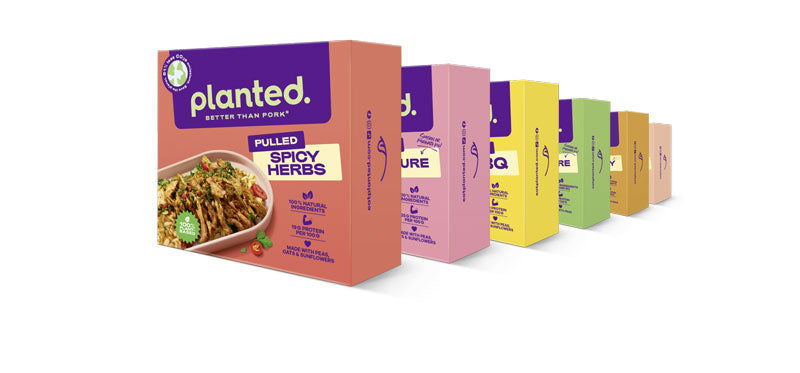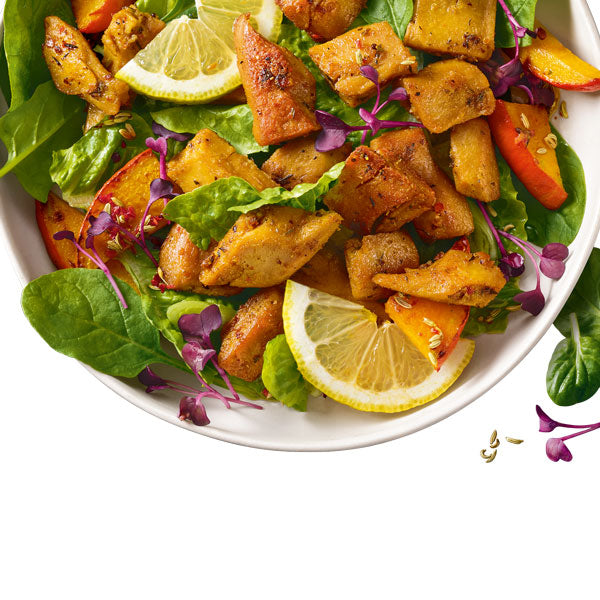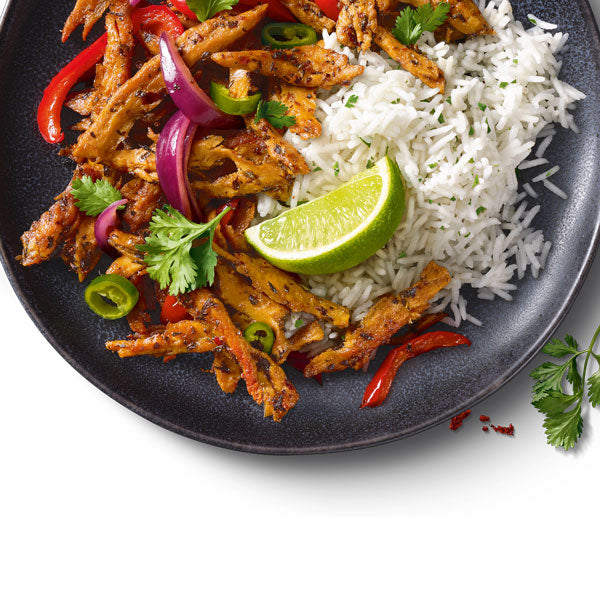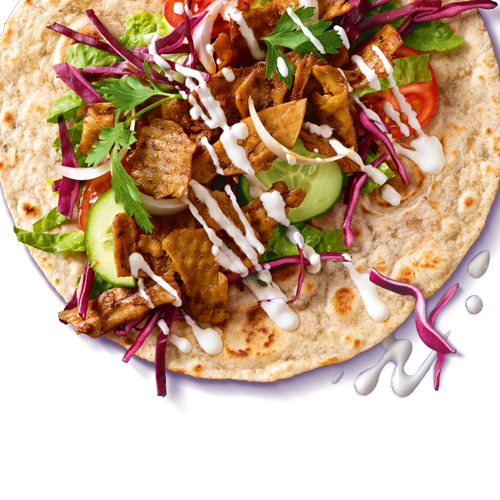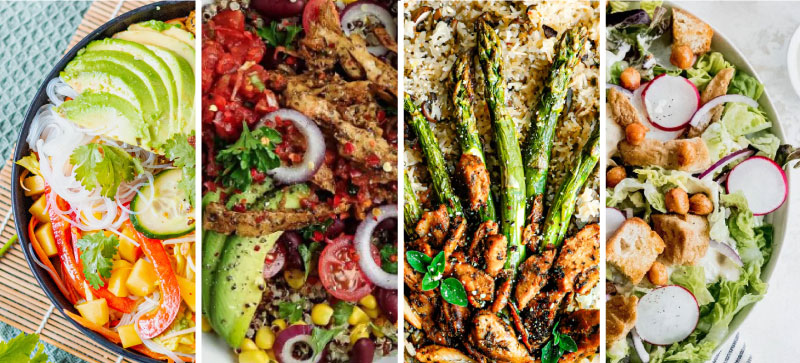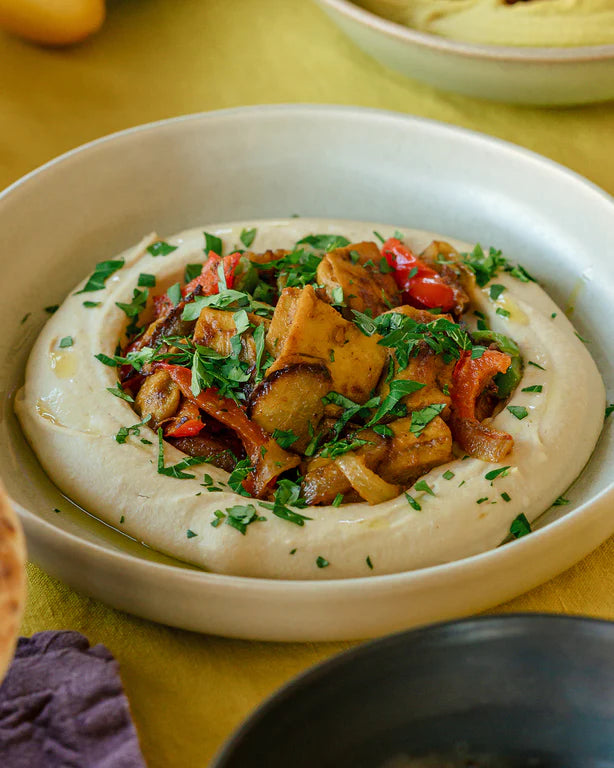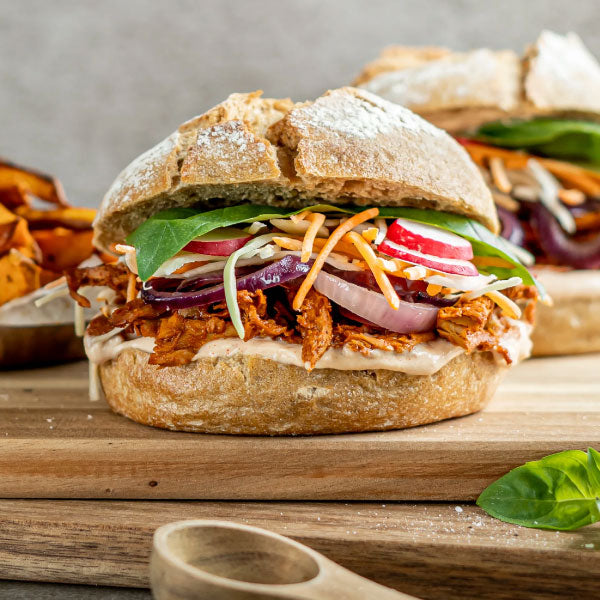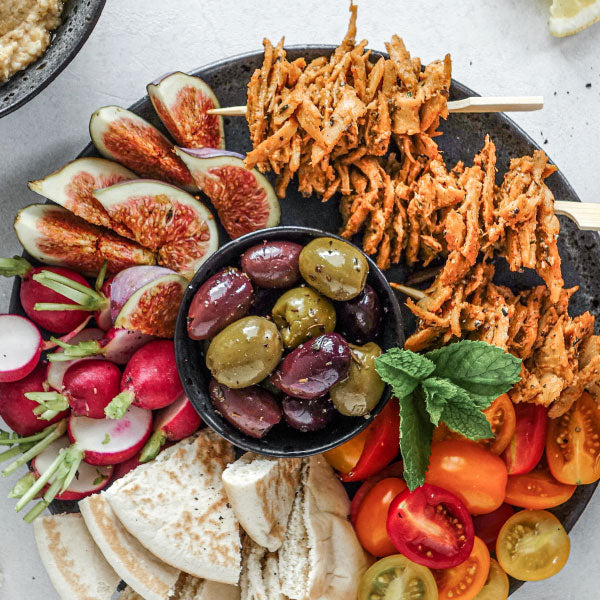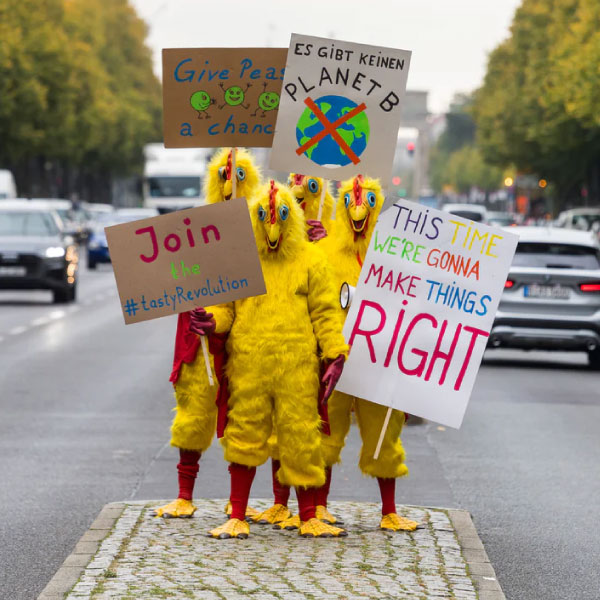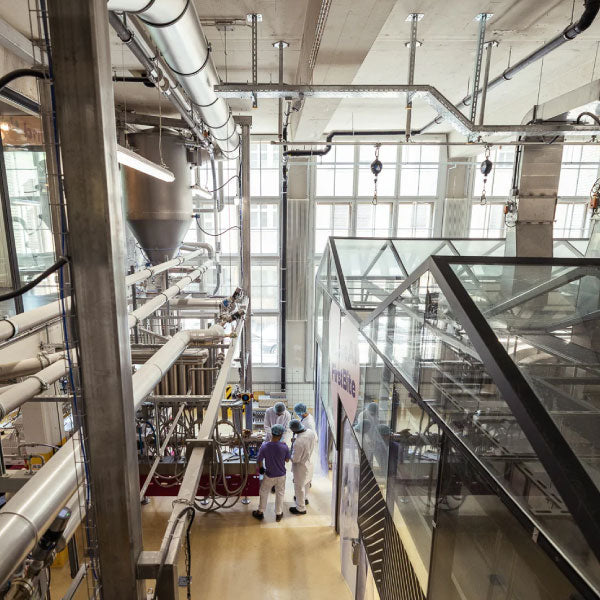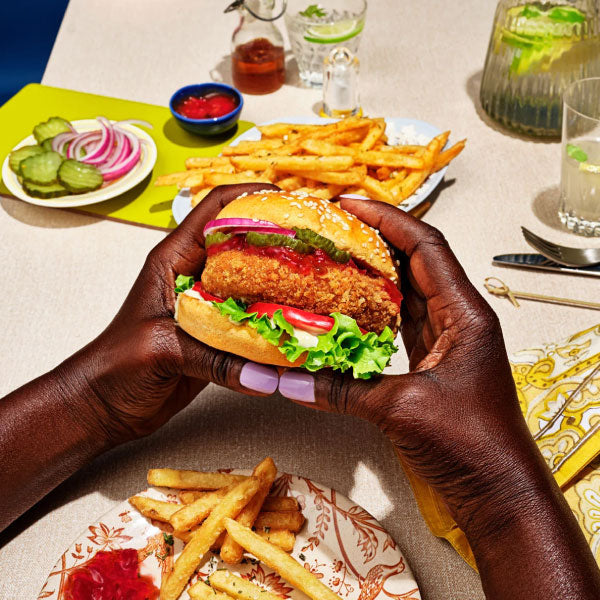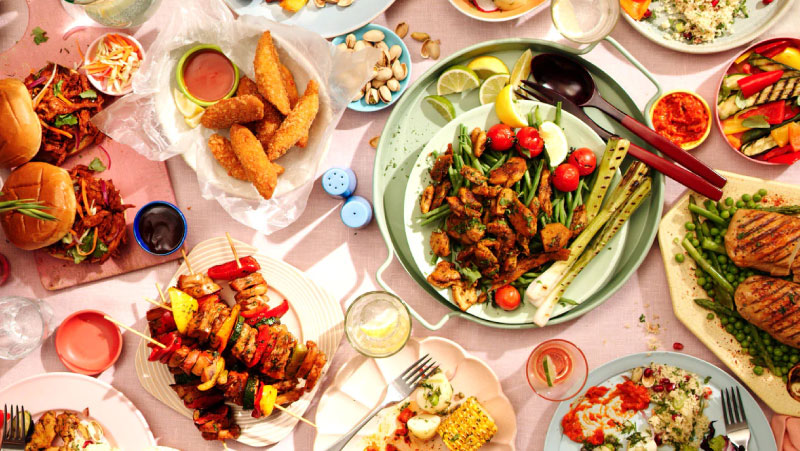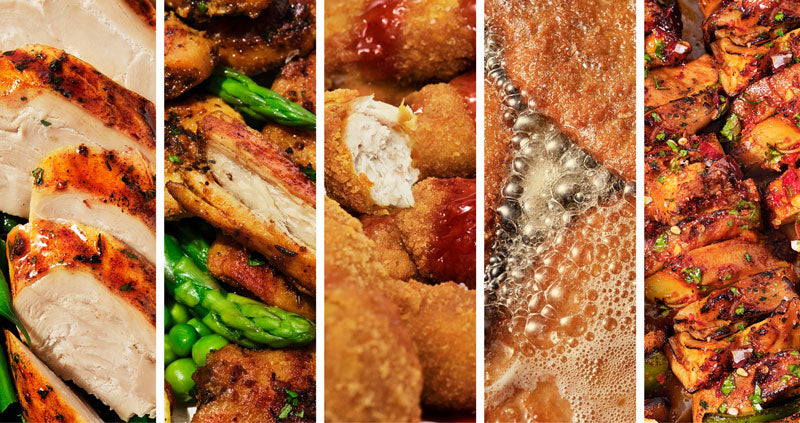General
-
Where can I buy Planted?
You can buy Planted either directly from our Online store, in retail stores as well as in many restaurants. Find all locations in our Location finder -
How do I prepare Planted correctly?
For our meat to taste great, proper preparation is key. You can find many tips and tricks and delicious recipes at Recipes -
Why does Planted look like animal meat?
We humans are creatures of habit, as we all know. To have an impact on the planet, our eating habits need to change. The best way to do this is with a meat-like product that can be integrated into our eating habits. This is one of the best ways to promote a plant-based diet that even diehard meat eaters will enjoy. We know that old habits are hard to change, so we are trying to do our part. -
What sets Planted apart from other suppliers?
Planted differs mainly in the following points:
- Own production in Switzerland: We are very proud that we can produce our meat in our own production. This gives us full control over the whole process and allows us to further optimize our meat.
- Short ingredient list: For example, our planted chicken has only few ingredients
- No additives, no E-numbers, no artificial flavors, colors or other artificial additives. -
What is the shelf life of Planted?
If you order our meat via the online store, the best-before date is 20 days from shipment in refrigerated condition. In the retail trade, see the best-before date on the packaging. -
Can Planted be frozen?
Due to possible quality loss, we do not recommend freezing Planted. Products from the onlineshop are thawed or passively cooled from shipping. Packages in the retail trade are not frozen.
-
Can Planted be reheated after preparation?
Yes, dishes with our meat can generally be reheated. Depending on the storage and reheating method, sensory deviations may occur, such as loss of juiciness and texture.
It is generally recommended to check food and especially dishes before consumption to see if they have changed in smell, visual appearance or taste. Please note that food must be stored in the refrigerator at below 5°C after cooking and you should always follow the storage instructions and expiry dates on the food packaging. -
Are Planted products certified organic?
At the moment our meat is not certified organic. However, we are constantly searching for and evaluating organic raw materials. We are working on being able to offer our meat in organic quality in the future. Together with the Federal Office for Agriculture, for example, we are currently examining whether we can start a pilot project for the production of yellow pea protein in Swiss organic quality. -
Where are Planted products made?
Our meat is produced in our own production facility in Kemptthal, Switzerland. -
How are Planted products produced?
The manufacturing process is called wet extrusion. Extrusion is a process used in the food industry for products such as peanut flips, cornflakes, spaghetti and now Planted. It is central to the second generation of plant-based meat substitutes because it allows extracted plant proteins, which have a spherical shape at the microscopic level, to be transformed into the fibrous and stretched form of animal muscle fiber proteins. By rotating two screws, the ingredients are heated and pressurized in the extruder. At the same time, shear forces act as in a pasta machine. This produces a dough that is pressed through a nozzle and cooled inside. Thus, we can convert plant proteins into the fibrous structure of meat by applying only heat, pressure and shear. This innovative process mixes the best raw materials and selects the right parameters for our unique setup, without the need for chemical additives.
Ingredients
-
What ingredients does Planted consist of?
We take an innovative approach and use a perfect process and high-quality ingredients to make products that taste great - without any additives. With a minimum of natural ingredients, we set a completely new standard in the plant-based product category. Thanks to a variety of proteins our products are healthy for consumers and protect the environment. All Planted meats are 100% plant-based and are made using only carefully selected natural ingredients:
-peas, sunflowers, soya
- rapeseed oil (sunflower oil at planted.bratwurst)
- Water
- Vitamin B12
+ if necessary marinade natural ingredients such as salt, sugar, spices, herbs, yeast, lemon juice or other oils)
You can find the exact details of the respective ingredients and the nutritional values of each product on its packaging or in our webshop. -
What are the nutritional values of Planted?
You can find the exact nutritional values of the individual productshere. -
Are Planted products gluten-free?
Our breaded products, such as planted.schnitzel Wiener Art, the planted.chicken Crispy Strips and the planted.chicken Crispy Burger contain wheat flour. These products are therefore not gluten-free.
For the remaining products, no gluten-containing ingredient or gluten as a binder is used in the manufacturing process. However, due to the manufacturing process, it cannot be completely ruled out that gluten containing ingredients come into contact with the product. Therefore, these products are marked with a trace information. -
Are Planted products vegan?
Our meat is 100% plant based, made from clean ingredients only and also marked with the V-label.
-
Does the Planted meat contain GMOs?
Our raw materials are produced from GMO-free plants. Our vitamin B12 is obtained through fermentation and contains no GMOs. -
Where does the vitamin B12 used come from?
The vitamin B12 we use is cyanocobalamin. This is produced biotechnologically (fermentation) and is GMO-free, vegan and therefore produced without animal products. It is added because it is not found in high quantities in peas or in general plants. The supply of vitamin B12 is essential for a functioning metabolism and plays a key role for the blood, the nervous system and the brain.
Sustainability
-
Is Planted a certified B Corp?
Yes, we are B Corp Certified since September 2023 and very proud of this achievement! The B Corp Certification is a testament to Planted's unwavering dedication to creating a positive impact on both people and the planet. As a Certified B Corp, we join a global community of businesses that meet high standards of performance, transparency, and accountability, balancing profit with purpose. For more information on sustainability and the savings per product, please visit:
Sustainability -
How is the CO2 and water footprint of Planted products calculated?
For the carbon footprint, the entire life cycle of our meat was evaluated. For this purpose, we work together with the independent institute Eaternity. This looked at our meat from the cradle to the grave (Cradle to Grave). From growing and harvesting the ingredients to processing and transport, energy consumption in our production facility, storage and transport to stores, and disposal of packaging - everything was included. These calculations are particularly important to us because they show us the areas in which we can still improve and where we can best start. -
How is biodiversity dealt with in the selection of products?
The sustainable and local cultivation of our raw materials is very important to us. In our products, we use a variety of proteins from plants, thereby promoting diversity in the cultivation of plant proteins and enabling a balanced diet. Pea proteins and plant fibres are Planted's main raw materials and make up the majority of our total amount of purchased ingredients. Other protein sources include oats and sunflower. We mainly use yellow peas as a protein source for our products, mostly sourced from Western Europe. All purchased raw materials are GMO-free and are not grown in biodiverse rainforest areas. -
Is Planted more sustainable compared to animal products?
Yes, compared to conventional meat production, Planted emits up to 97% less greenhouse gases and uses up to 90% less water. You can find more information about sustainability and the savings per product here: --> link to Sustainability -
How does Planted support the circular economy?
Wherever possible, we procure raw materials using a circular economy approach in order to be able to produce in an even more resource-efficient way. This enables us to make an even greater contribution to a sustainable world food system with our products. To reduce waste and emissions, material and energy cycles are closed whenever possible and by-product flows from other value chains are harnessed. For example, for our sunflower, used in planted.pulled, we only use the residual press cake left after oil extraction which emerges as a significant by-product. Traditionally, this sunflower press cake finds applications in animal feed, as a component in fertilizers, or as substrate for biogas production. Beyond these uses, the press cake holds potential for nutritional repurposing due to its richness in essential macro- and micronutrients, offering both protein and fibre. This approach ensures that every part of the harvest is utilized, minimizing waste. -
Are the products produced in an environmentally friendly way?
We use electricity from 100 % Swiss hydropower for our production in Kemptthal (Switzerland). And to ensure that no energy is wasted, we recycle the heat generated in the production process and use it to heat our offices and other parts of the building. With this we’ve drastically reduced our natural gas usage to just 20%, with the remaining 80% fulfilled by this energy recovery system. To reduce water consumption as much as possible, we have implemented water conservation measures throughout the company. Learn more about sustainability at Planted in our sustainability report (link directly to the file). -
How sustainable is the procurement of raw materials?
In addition to quality and safety, we place particular emphasis on identifying and avoiding social and environmental risks in our supply chain. Our guideline for suppliers defines criteria for sustainable cooperation based on the ILO labour standards and the UN Guiding Principles on Business and Human Rights and describes the avoidance of environmental pollution. This policy is currently being communicated to our key suppliers. -
Why can't all raw materials be sourced from Switzerland?
The local cultivation of our raw materials is very important to us. Unfortunately, there is currently a lack of processing capacity in Switzerland to produce high-quality protein meals from the protein seeds (mostly legumes), which is why we source them from nearby foreign countries. In addition, the variety or protein content and composition of the respective plant is often not yet adapted to the application, in our case wet extrusion, so there is still a lack of know-how. Together with the Federal Office for Agriculture, we have launched a pilot project for the cultivation and processing of Swiss yellow pea proteins. In the launched project, our team wants to concretely investigate the suitable variety as well as the further processing into protein flours, so that these raw materials can also be sourced from Switzerland in the near future. We are also a member of the Swiss Protein Association (Swiss Protein Associationin order to promote the topic of alternative proteins on the political agenda.
-
How sustainable is pea protein?
The cultivation of yellow peas has some ecological advantages. As a legume, they are able to fix nitrogen from the atmosphere with the help of soil bacteria. This leads to improved soil health and quality as the plant naturally returns nitrogen to the soil. After harvesting, the peas are processed into nutrient-rich flour, focusing on an animal-meat-like nutritional composition with high protein and low carbohydrate content. The pea fibres and proteins mostly come from Western European countries so that we can ensure quality and a short transport route to Switzerland. With our production, in contrast to traditional meat production, we skip the animal in the value chain, i.e. the peas that are grown can be used directly for further processing and are not still used to feed farm animals. As a result, our value chain has lower water consumption, less land use and lower greenhouse gas emissions. -
What is Planted doing about food waste?
We believe in using scarce resources sparingly and responsibly. That is why we are continuously working to optimise our production processes and avoid waste wherever possible. For example, we have introduced a project that allows us to recycle scrap from our production. Such rejects occur when our machines are not yet fully heated or when parts of the product do not meet quality standards, for example. With the new process, we have been able to reduce losses by over 90 % and thus take action against food waste. We always want to improve and have therefore set ourselves the goal of achieving 100 % reduction. -
How are Planted raw materials transported?
Raw materials are transported in containers and trucks, we do not fly main raw materials in. -
Where do the figures from the comparison with animal products come from?
The comparison with animal products was carried out by the independent institute Eaternity. Using the example of planted.chicken, the footprint is compared with that of a conventionally reared Swiss chicken (breast). The figures are compared on a cradle-to-gate basis for the planted.chicken with those of the animal chicken - i.e. from production until the finished product leaves the factory. here -
What is the packaging made of?
In the retail sector, we have switched our packaging in to 80% recycled PET (rPET) in Switzerland and continue to use continue to use FSC/PEFC-certified cartonboard. The rPET material has a lower carbon footprint - 66% more efficient in reducing environmental impact - than its virgin plastic counterpart and has already been recycled at least once. The FSC/PEFC certificate ensures, that the material used originates from managed forests. Our cardboard packaging can be disposed of in the usual cardboard collection cardboard collection. -
Where are the ingredients sourced from?
We are very concerned about the local cultivation of our raw materials. Most of our raw materials currently come from Western Europe. Whenever possible, we try to source raw materials from Switzerland and seek close dialogue with Swiss suppliers. For example, in 2023 we sourced yellow peas from Switzerland for the first time and are conducting a research project into the use of Swiss yellow peas in our products. More detailed information on our raw materials and our approach to ensuring that our suppliers comply with social and environmental standards in addition to the highest quality standards can be found in our Sustainability Report 2023.
B2B Foodservice
-
I own a restaurant, retail, online shop or am a reseller and would like to become a customer, how do I get in contact with you?
We are very happy about that! Please contact our Foodservice Team at hello.uk@eatplanted.com or fill in the form on the website . -
Can I receive free samples?
Sure thing! Feel free to contact our Foodservice Team at hello.uk@eatplanted.com or fill in the relevant form on the website . -
Which products can I get as samples?
We can send you samples (220g or 400g) of our entire product range. -
Where can I see B2B prices and conditions?
We will be happy to advise you personally at hello.uk@eatplanted.com and provide you with your individual offer. -
What quantities can I purchase as a B2B customer?
The minimum order quantity is 8 kg in total. This can include different products. Our foodservice products are available in 2 kg formats. There is no maximum quantity ;)
-
How long does the delivery take?
If ordering through MP it is next day delivery if ordering before 11am (outside London) If ordering through PGC it is order by Monday 11am to receive on Thursday -
Are the products shipped frozen?
Yes, they are delivered to you at -18° without breaking the cold chain. -
Can I purchase the products online?
Not yet, we are working on an online ordering platform for our B2B customers. Please send orders in writing to our UK order mailbox hello.uk@eatplanted.com.
